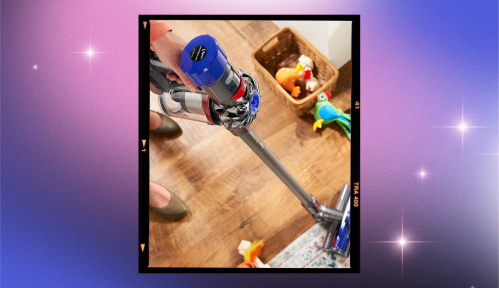Our editors independently select these products. Making a purchase through our links may earn Well+Good a commission
It can be easy to forget that your parents are full, complete people—with their own friends, problems, stresses, and achievements—beyond their roles in your life. But reducing anyone to just one part of who they are can make it difficult to build a meaningful relationship with them. To set the foundation for more well-rounded connections with parents, we talked to experts about specific questions to ask your parents about their childhood, your childhood, past regrets, life highlights, as well as their future wishes.
Experts in This Article
licensed marriage and family therapist and founder of Ibisanmi Relational Health
licensed marriage and family therapist and founder of Millennial Life Counseling
neuropsychologist and founder of Comprehend the Mind
In addition to helping you get to know them better, asking your parents questions about themselves can also help you accept them despite their shortcomings, says licensed marriage and family therapist Christiana Awosan, PhD. After all, none of us are perfect.
“Once you start getting to know your parents, you start realizing that they’re also humans who have made mistakes.” —Christiana Awosan, PhD
“Once you start getting to know your parents, you start realizing that they’re also humans who have made mistakes,” she says. “They’ve had horrible things happen to them and good things happen to them.” Understanding that your parents, like you, have personal experiences outside of being your caregiver gives you the ability “to really see them as human beings whom you can connect with,” adds Dr. Awosan.
Of course, some behaviors are inexcusable. With this in mind, the exercise of asking your parents questions to get to know them isn’t intended to wipe away any trauma to which they may have contributed, but to develop understanding. (And in the case that such trauma does exist in your relationship, it’s best to seek the care of a licensed professional to help you work through it.)
Additionally, as children grow up, their relationship with their parents should change. Especially once the child is an adult, a less-hierarchical approach to this relationship is ideal, says counselor Liz Higgins, LMFT, founder of Millennial Life Counseling in Dallas. Asking your parents questions about who they are changes that I-know-best dynamic, because you’re curious about them and not just looking to them when you need something. But before you jump into the line of questioning, the pros have a few tips to keep in mind.
What to keep in mind when asking your parents questions to get to know them as people
First, this certainly isn’t a one-and-done approach. You should aim to have multiple or even ongoing question-asking sessions with your parents if your goal is to know who they are outside of your familial relationship, says Dr. Awosan.
Second, adds Higgins, make sure your questions aren’t loaded with feelings you have about other issues. “As much as we’re talking about having more peer-level, person-to-person conversations with parents, there can be deeper subconscious drives,” she says. For instance, you might ask your parents why they made certain parenting decisions. This can lead to defensive parents if they know you disagree with how they approached something in the past. If there’s a response you know you want to hear, you might be better off picking a different question.
If you’re met with defensive parents, try calmly asking them why. “How long have you felt this way?” can be a good opener. You can also ask them to tell you more about why they are feeling certain feelings and if they have ever had similar emotions.”In Tai Chi, when force comes toward you, you move in the direction of the force,” explains Schuler. “Compare that to boxing, where the harder someone punches, the harder the opponent punches back.” She recommends inquiry and curiosity to deepen the relationship.
Last, remember that asking questions is, by nature, intimate because it requires self-disclosure—and people have varying levels of comfort around that. “Your parents might not want to talk about their life. It might be painful for them,” says Dr. Awosan.
With all of this in mind, work to formulate questions that you’re comfortable asking your parents that you also think they’ll be comfortable answering. Or, for some inspiration, check out the following 30 questions to ask your parents (some of which may not be applicable to your specific situation). The questions are categorized as icebreaker, relatable, or intimate, to help ensure everyone involved feels comfortable. Eventually, asking questions will help strengthen family ties and provide clarity for understanding mom and dad.
30 expert-recommended questions to ask your parents to get to know them better
Icebreakers
These questions don’t necessarily cover stressful or traumatic events, so asking them is generally a good place to start if you sense your parents might not love talking about more serious issues. These can range from friendship questions to life lessons they have learned.
- 1.Where did you learn X, Y, or Z lesson or skill?
- 2.What was life like when you were growing up?
- 3.What did you like to do alone while you were growing up?
- 4.Who were your best friends when you were a kid?
- 5.What did you like to do with your friends when you were younger?
- 6.What would you say your superpower is?
- 7.What do you like to do for fun?
- 8.What are the things that you’re passionate about?
- 9.What was your day like at work?
- 10.What do you enjoy about your job?
Relatable questions
To up the intimacy a notch beyond icebreaker-level questions, Dr. Awosan and Higgins recommend asking questions that may help you relate to your parents. Relational questions create a “day-in-the-life” scenario that allow your parents to explain what life is, and has been, like for them. These questions may also inspire thoughts on things that you can do together.
- 1.What was life like when you were my age?
- 2.What was the funniest thing that ever happened to in your early parenthood?
- 3.How did you meet my other parent and what attracted you to them?
- 4.How did you decide that you were going to have me?
- 5.What activities do you like doing with me?
- 6.What’s your favorite thing about me?
- 7.What would you like us to do for fun?
- 8.How did you manage work and life when you were my age?
- 9.What’s it like to see your children grown up and on their own?
Intimate questions
If you know that your parents are comfortable talking about topics close to the heart (or would at least be open to them), the below questions might be good ones to ask. When you’re getting to know your parents on a deeper, even more personal level, you want to hone in on how their experiences have shaped their personality, parenting practices, or worldview. Asking these deep-dive questions can help repair family relationships.
- 1.How did you become who you are?
- 2.What is your sense of how you were parented?
- 3.What lessons did you gain from your parents that inspired you as a parent?
- 4.Do you remember something that had a profound impact on you as a child?
- 5.What’s your favorite thing about yourself?
- 6.What do you feel like you needed from your parents that you didn’t get?
- 7.What was your relationship like with your grandparents?
- 8.What was the most difficult loss you’ve experienced?
- 9.What would you have done differently about X?
- 10.How did you feel the day I was born?
- 11.Is there anything about you parenting me that you would’ve changed?
Frequently Asked Question To Get To Know Your Parents Better
What are some hard questions to ask your parents?
Depending on your relationship, even simple questions can sometimes feel hard. But most often, hard questions are those that involve intense emotion like love, loss, or regret. Money is also a sensitive subject for many. “Discussing financial matters with your parents as an adult can be important, especially if you want to ensure their financial well-being and plan for the future,” says neuropsychologist Dr. Sanam Hafeez, PsyD, director of Comprehend the Mind.
What are some offbeat questions to ask your family?
Asking random and fun questions can be a great way for mom and dad to open up to some more difficult topics. Start with something like, What life lessons have you learned that you think are important for me to know? Dr. Hafeez recommends trying to gain some insight and advice with questions like, How did you navigate difficult decisions in your life? and, Is there any advice you wish you had received when you were my age?
Asking about any books, music, or movies that had a profound impact on their life can also be a way to help you relate and bond with your parents, says Dr. Hafeez.
What are some important questions to ask your parents?
Important questions can span a variety of topics, but think about what means the most to you—whether that’s gaining insight into how your parents are staying emotionally and mentally healthy as they age or learning how to cook a traditional family recipe. Astrology and family relationships can also go hand-in-hand, so finding out the details of your birth chart (and possibly theirs as well) may provide some insight into your bond. You can even compare your charts to learn more about your parent child compatibility. Be sure to ask their sign as well as time of birth and place so you can get an accurate reading.
How do I use these questions to improve our bond?
Asking these questions can not only open a more intimate dialogue between you and your parents, but can also help you learn more about their wishes and values. Dr. Hafeez says that asking questions like, are their any goals or ambitions you still want to achieve, can also reignite a sense of purpose for them and you.
What are some thought-provoking questions to ask my mom?
Dr. Hafeez recommends asking your mom about your family history, and your childhood. What were some of the most challenging aspects of raising me?, What are the values or principles you aimed to instill in me as a child?, and Can you share some fond memories of my childhood? are all good family conversation starters to learn more parental understanding.
What are some good questions to ask my dad?
Asking about any family traditions that your dad would like to pass onto the next generation is a nice conversation to have, suggests Dr. Hafeez. You might also ask if there is anything he wishes he had done differently in life. Finally, ask about his proudest achievements or moments of personal satisfaction. Those questions will hopefully elicit happy memories and allow you to learn, laugh, and love together.
How can I build a better connection with my parents?
Like most things, it takes time. Giving them your full attention is crucial to building strong connections. “It’s how we fill the bucket of safety, security and trust. Life is busy, but many of our parents are struggling in a culture that makes our older generation feel invisible,” says Schuler. Prioritizing their company will be seen as a act of kindness and love, and will hopefully strengthen and secure your familial bond.
Sign Up for Our Daily Newsletter
Get all the latest in wellness, trends, food, fitness, beauty, and more delivered right to your inbox.
Got it, you've been added to our email list.











